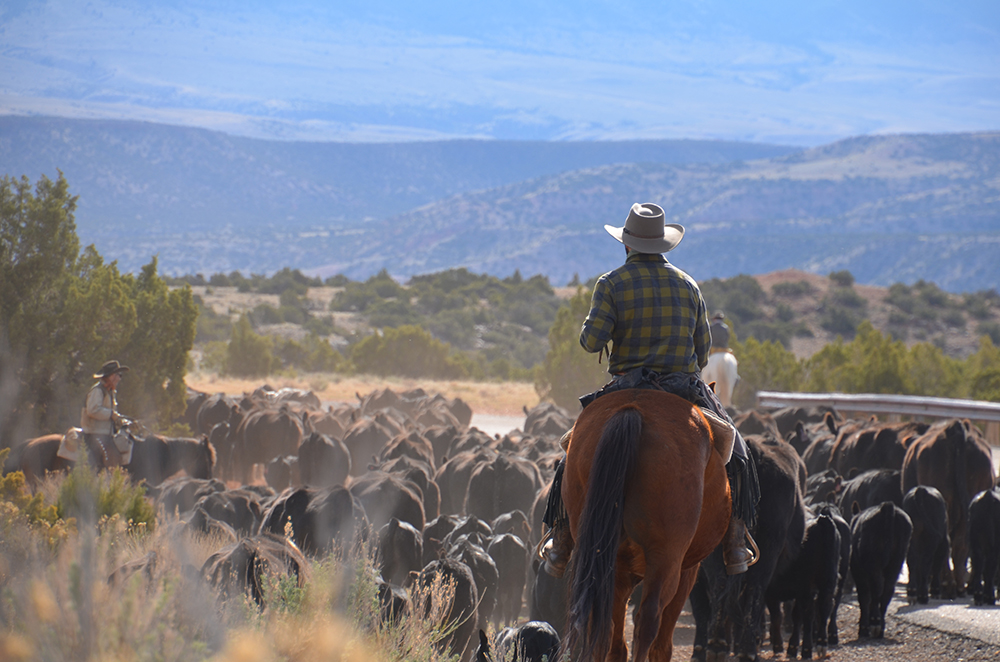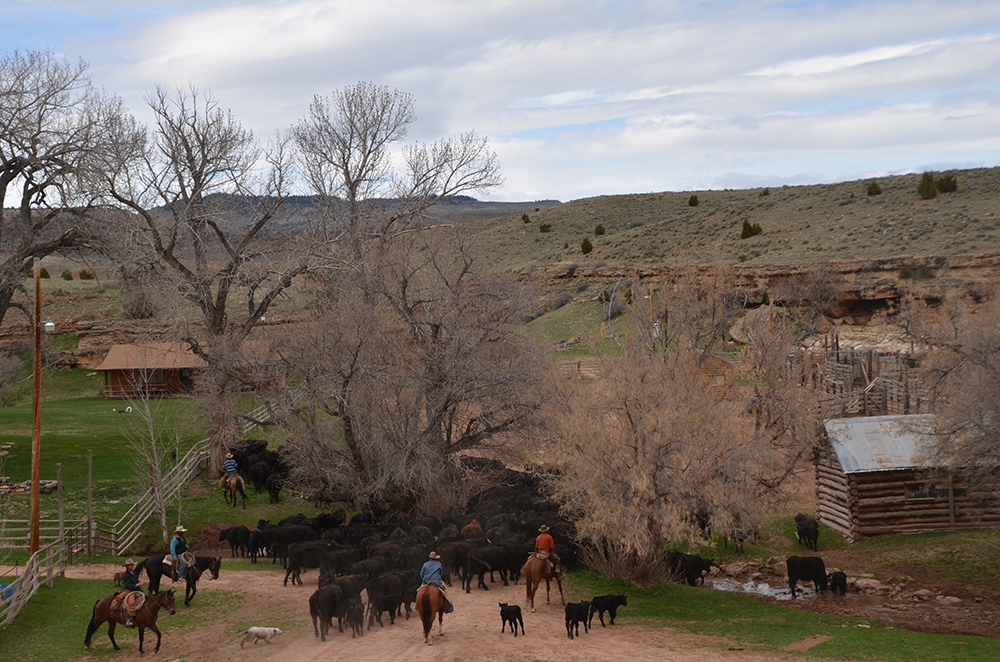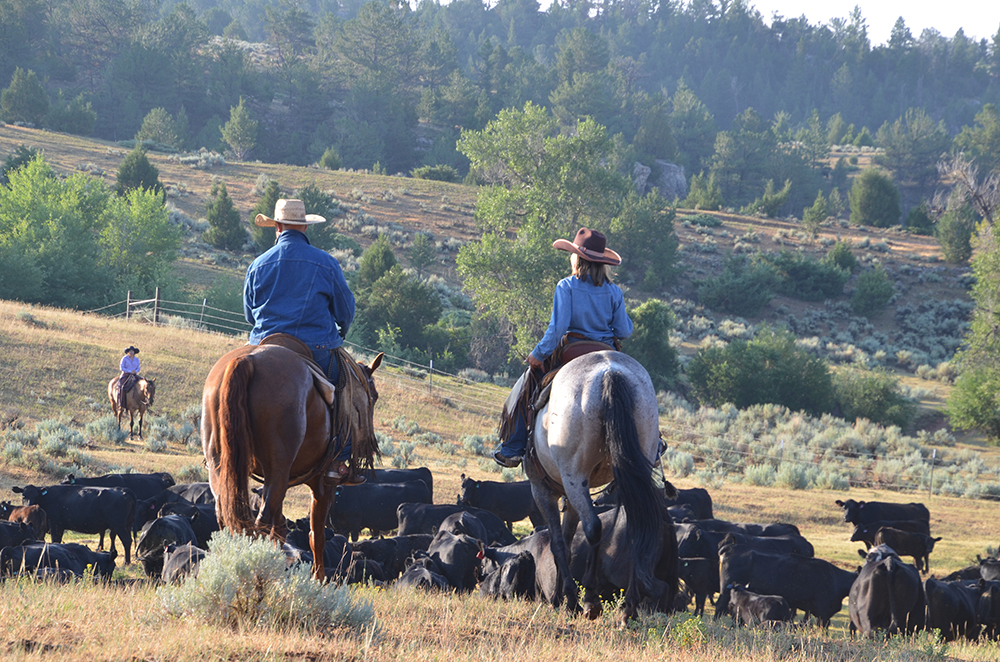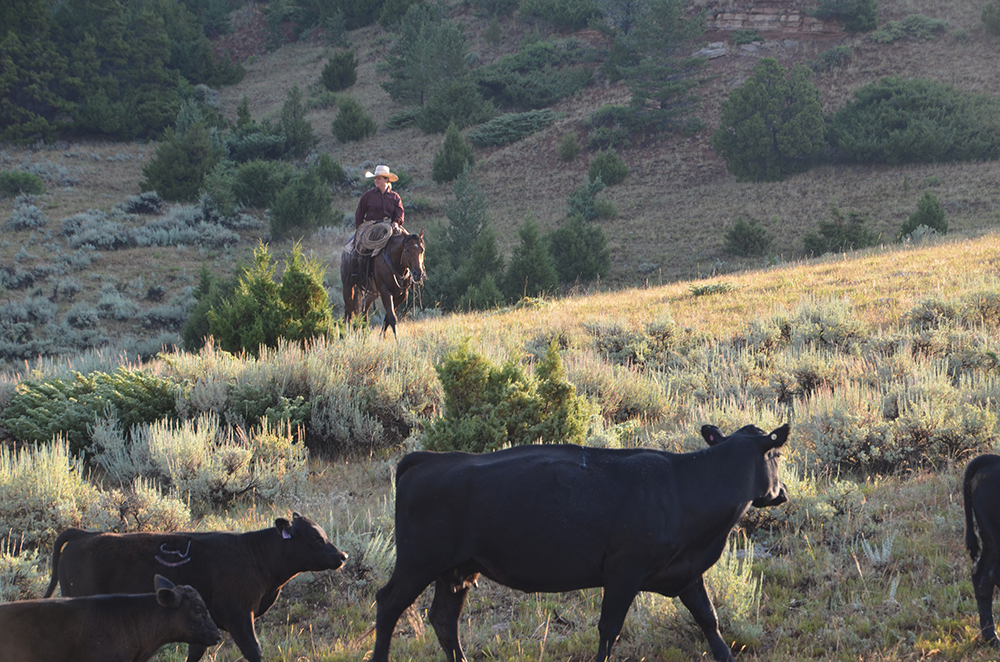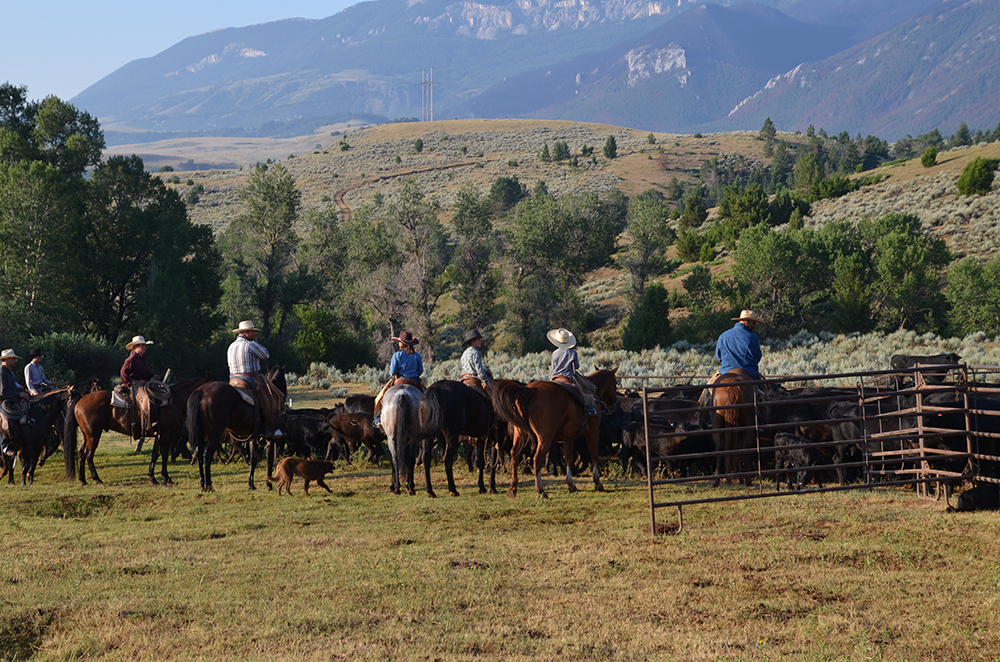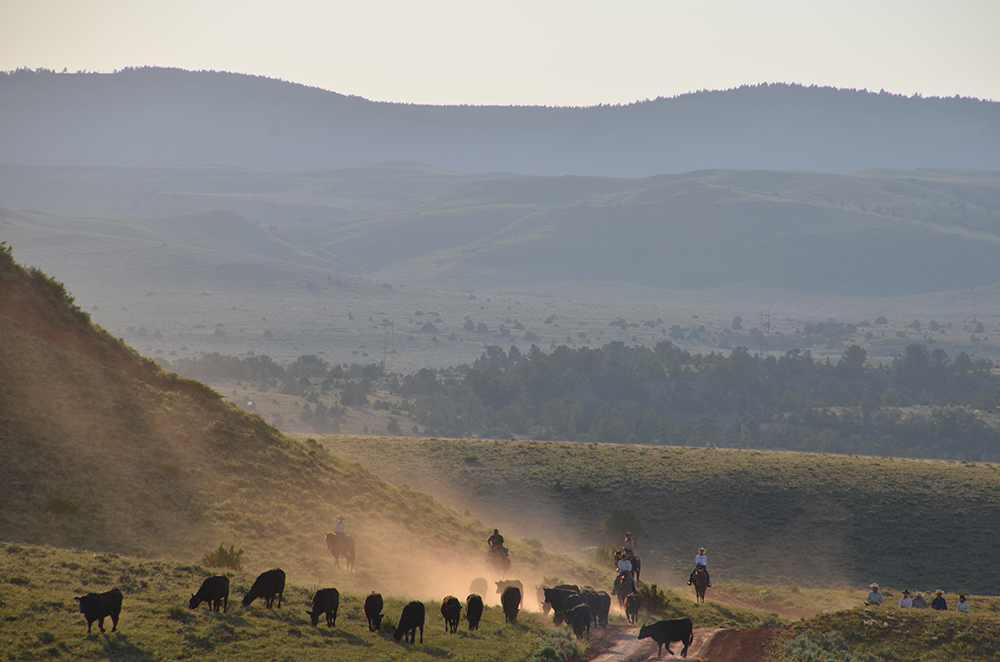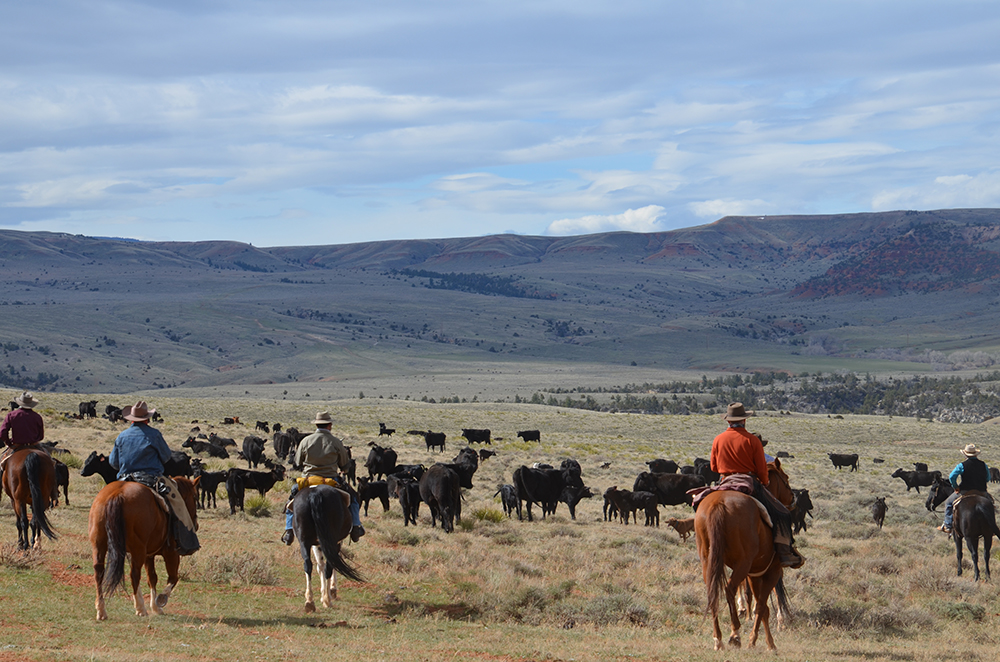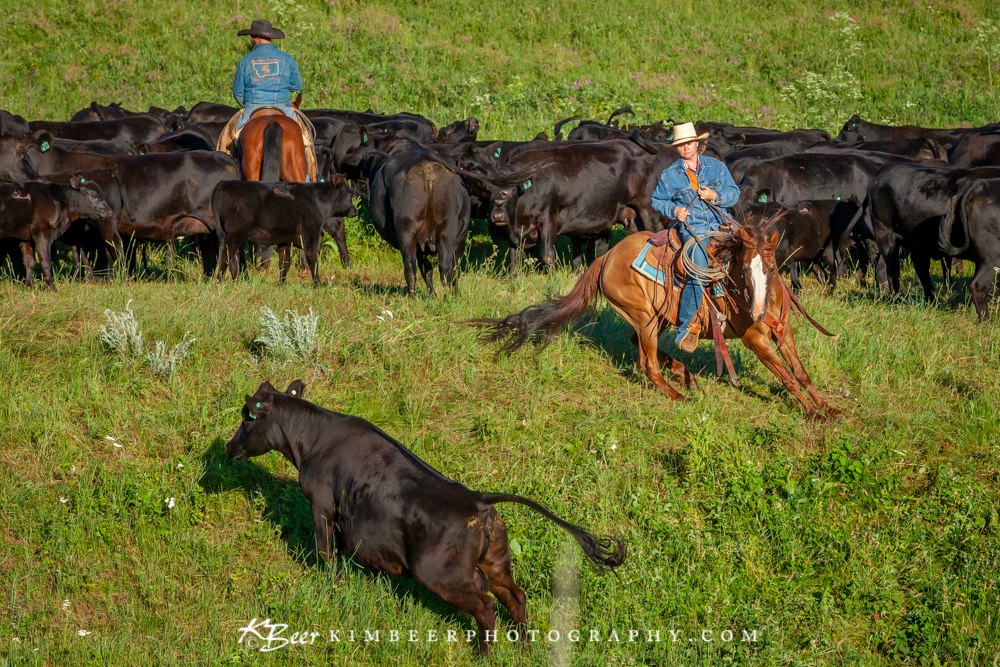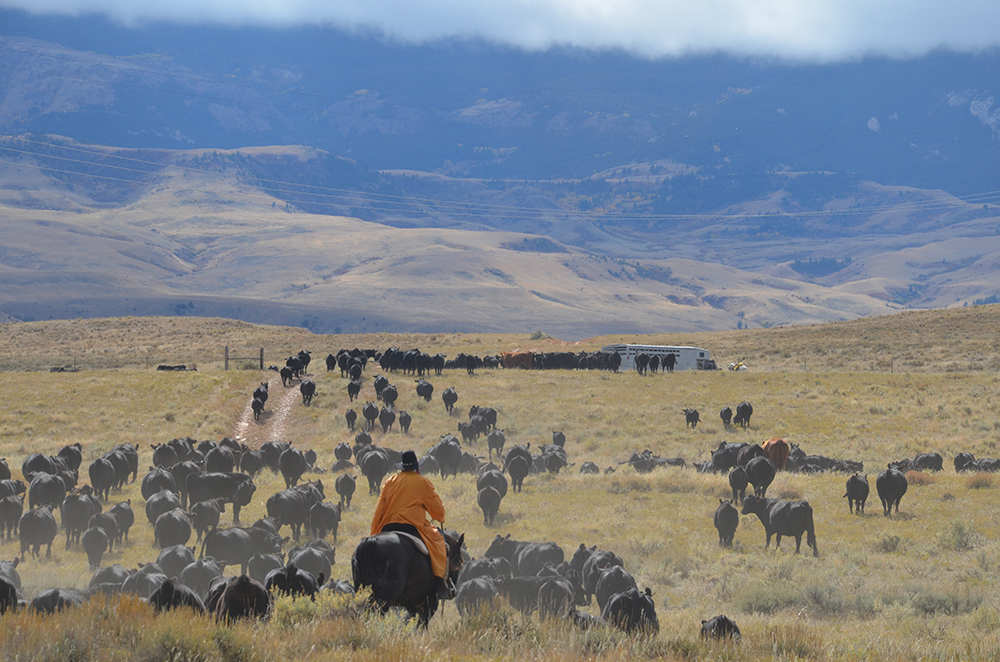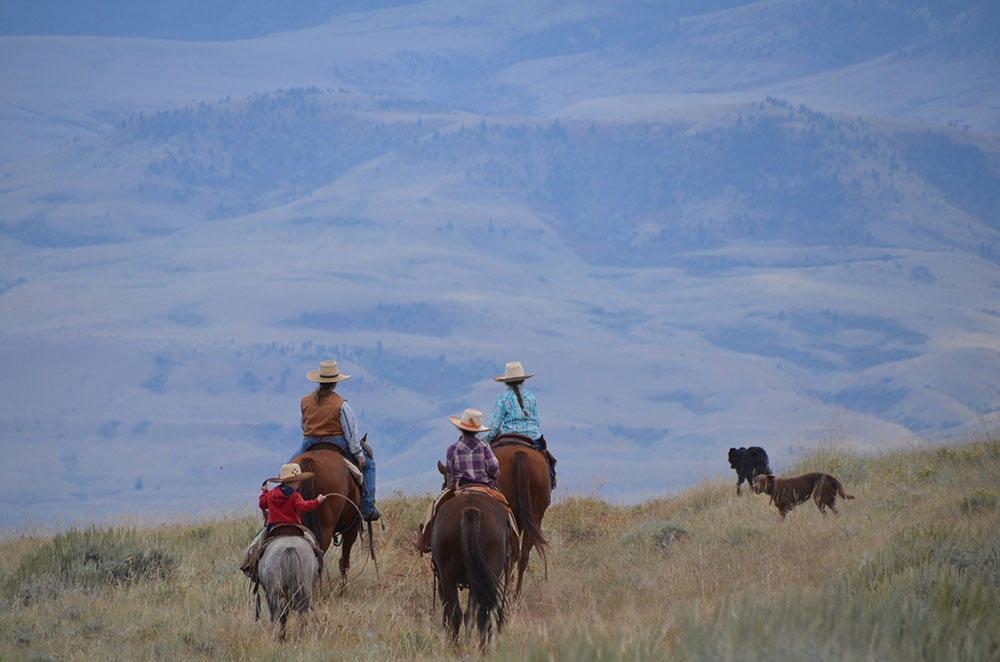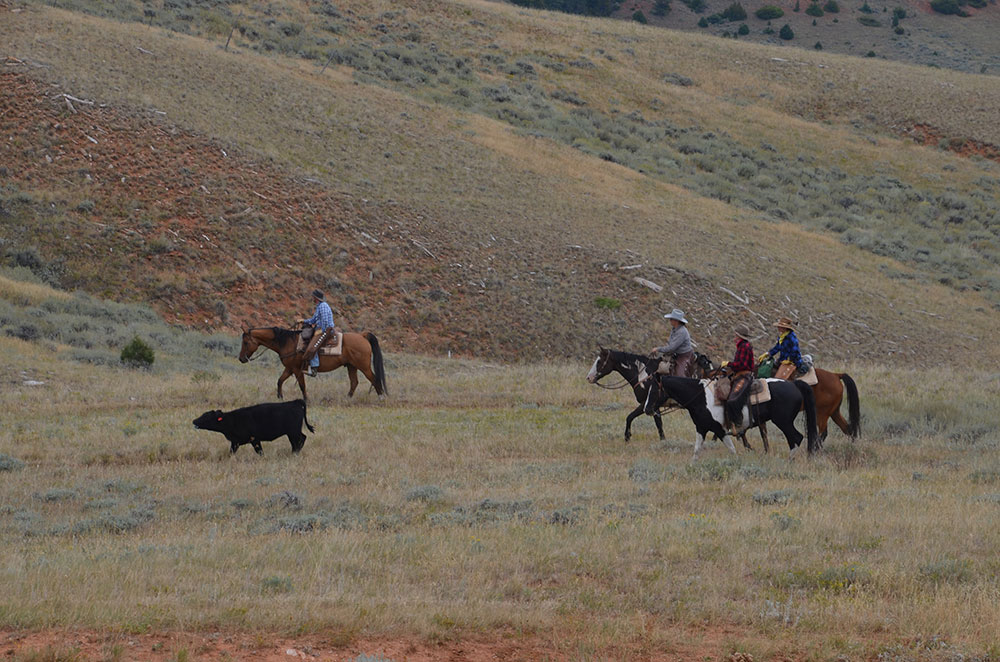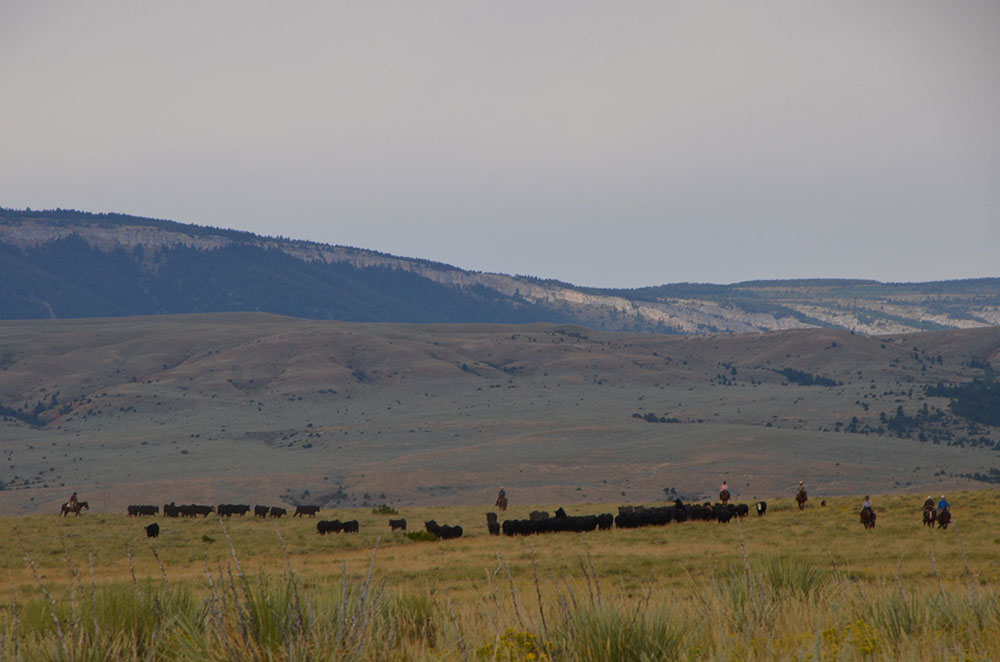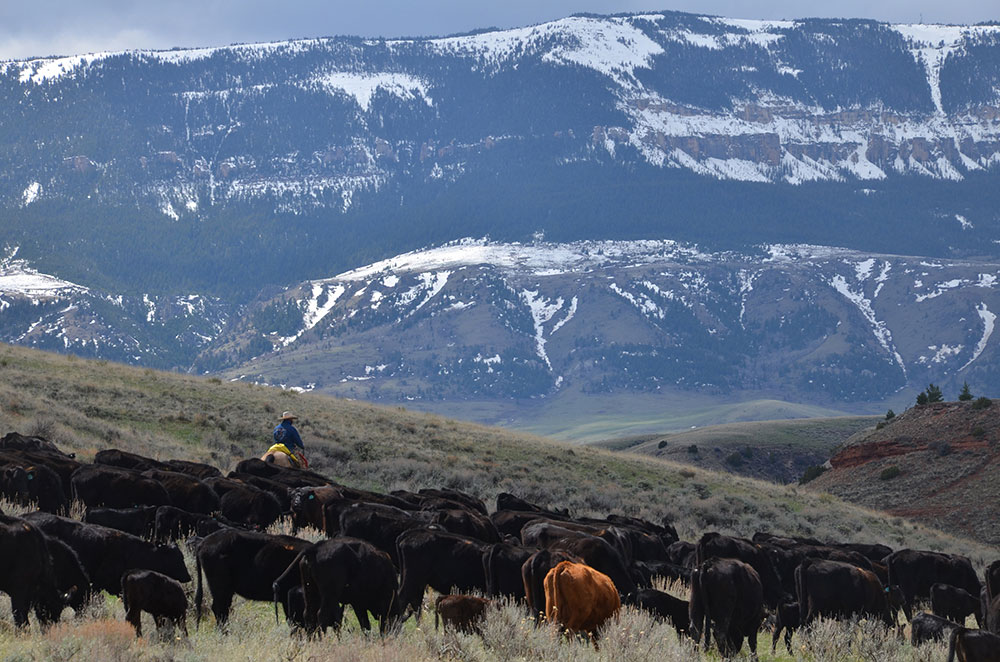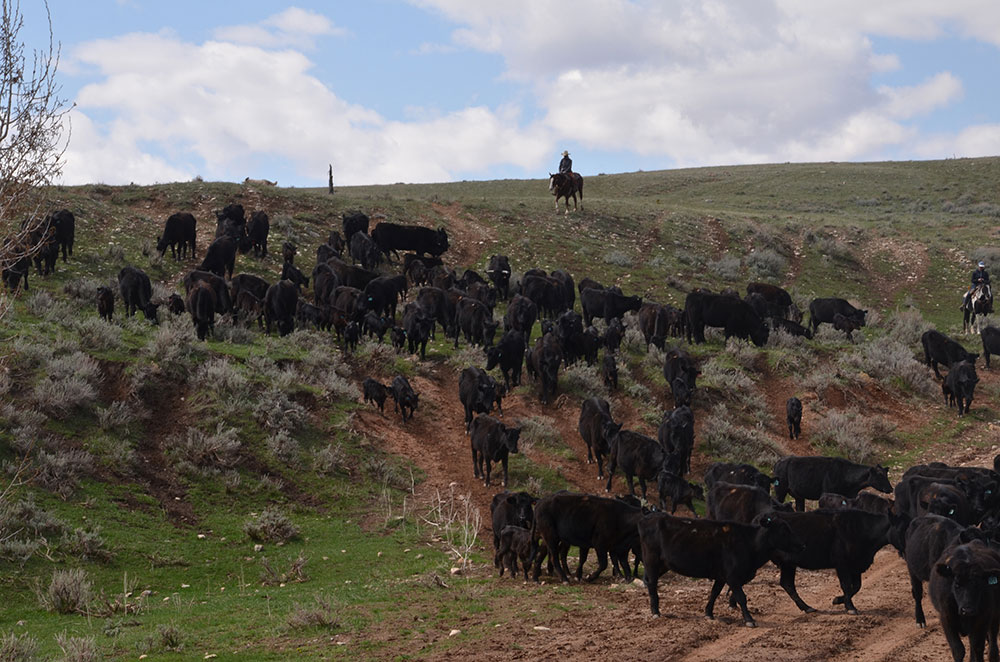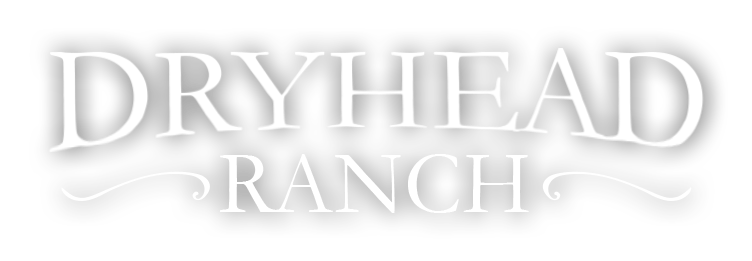CATTLE DRIVE VACATIONS
Cattle Drives for the Dryhead Ranch began in 1937 when my dad, Joe Bassett, was a 10 year old boy who had lost his father and loved horses, began asking neighbors if he could join their cattle drives as they moved their cows into the Dryhead country. Joe and Iris bought their first cows in 1949 when they got married. The ranch was purchased in 1966 and cattle drives for the whole family started as we took our own cows down the Old Sioux trail into the Pryor Mountains.
Today, on our Dryhead Ranch cattle drive we follow the same five hundred year old– Old Sioux trail into the beautiful Dryhead Country. Dad is gone and mom rides shotgun when we pick up and return guests to Billings. Kristen answers the phone and the email in the ranch office. My daughter, Jessica and her husband Jake are the head cowboys. Their four kids play in the canyon wall rocks near the house and ride their ponies in the ranch yard at the everyday. We do not camp on our authentic cattle drives anymore but the trail through the mountains is so picturesque you won’t have enough space on your camera to capture it all.
Riding between the mountains is rugged enough that your riding skills will amaze you and challenging enough that the memory of it will stay with you forever. This is the real deal. Don’t hesitate or think twice about an amazing week with real cowboys, real cattle, the best cow horses and the right place to experience it all. Dryhead Ranch.
SPRING CATTLE DRIVES
April and May begin our spring cattle drives. Each drive moved 200-250 mother cows and calves. This takes us four days. Each night has a designated corral or pasture for the cows to stay in where we feed and water them. Each guest rides several horses during the week. Horses are fed in the corral each night and some are changed out each day. Cowboy horses are changed each day. We do not camp during the cattle drives. Guests are transported back to the ranch each night for a warm meal and comfortable sleeping accommodations. Time to look at pictures taken for the day and excitement shared among each guest about their favorite moment keeps us all excited for the next day.
Montana weather is spring time weather patterns. We have a “what to bring list” on our website to help with your what to bring questions. Warm clothing is highly recommended. Layering of light and heavy clothes is a wise way to stay comfortable while riding in various weather changes. We rent some equipment in our ranch store: such as chinks/chaps, slickers/rain gear, mud boots. We loan to each rider a pommel bag, water bottle, silk scarf, and a set of spurs are an option for a learning experience.
Cattle Drives are necessary for us to move our cows from Wyoming winter grazing to our Montana ranch. As a working cattle ranch we count on you working with us to accomplish each cattle drive. 500 head of mother cows and baby calves walking 50 miles gives a job to everyone and keeping the calves moving forward is the main challenge. The cows know where they are going but the calves are young and are just leaving their winter bedding grounds where they were born, so keeping them moving with the herd is the main challenge that we count on everyone to participate in. The herd moves at a walk so the calves can keep up and gives each rider time to enjoy the scenery, take pictures and take in all the surrounding feelings of this life long dream of being a cowboy in Montana. Come share with Dryhead Ranch this amazing experience.
FALL WEANING WEEKS
Our fall weaning weeks are part of our late September and early October weaning weeks. We gather and bring to ranch headquarters four different groups of two hundred cows with their calves so we can wean the calves and haul them to Wyoming to put them in our feedlots. When the calves are weaned and hauled to Wyoming, then we pregnancy test the cows so we have an idea what our calf crop will be for the next year and how to cull unproductive cows. These are full days of riding large pastures and trailing an amazing long line of cows to the ranch headquarters. These long days let our guests experience the full process of how ranches gather and handle large numbers of cattle and how the cow business works. This is a beautiful time in our season at the ranch. Early crisp mornings, warm and cool days to ride high mountain country and arriving at the ranch sometimes just before or after dark. This is the perfect chance to bond with your great cow horse and learn the partnership in a good days work in Montana’s big sky country.
Dryhead Ranch does not do a late fall cattle drive to Wyoming. Weather conditions and grass conditions are not cooperating enough to guarantee that we can move our cows to Wyoming at the end of October. Most years the crops need the warm fall weather to finish growing corn and hay crops which make the farm fields in Wyoming not harvested until late November. Corn is still standing in the fields waiting for the weather to dry the kernals of corn so we can use them as feed. Hay is still growing in the fields and we are still able to irrigated until the later part of October. To buy hay to feed several hundred head of cows for even two weeks costs too much. So, we do not do fall cattle drives with our guests.
For the past 10-15 years we have brought all the cows home the weekend after Thanksgiving. It is normally just before a big storm when the cows are beginning to push the fences to come home ahead of the storm and out of the deeper snow. Since we have just cows and no calves and no available water along the trail, we walk them home in two days. It takes a day to sort them three ways in Matt’s working pens. Then we trail Jeff’s cows 2 miles down to his farm and haul Jen and Jake’s cows 5 miles to winter pastures. Matt keeps his cows close to the house for a couple more days so he can pregnancy test them before he moves them 10 miles west to pasture near the town of Byron. Then the cows are settled for 4 months until they are calved out and ready to start back to the Dryhead grazing pastures again in the spring. Our circle of life begins again each spring.

